Vacuum pumps are essential tools in many industries, from manufacturing to medical research. But what exactly are they, and how do they work? In this guide, we’ll explore the different types of vacuum pumps, their applications, and tips for proper maintenance to ensure optimal performance.
What is a Vacuum Pump?
A vacuum pump is a mechanical device that removes gas molecules from a sealed chamber to create a partial or complete vacuum. This is achieved by creating a low-pressure environment that causes gas molecules to move from an area of high pressure to an area of low pressure. Vacuum pumps are used in a variety of industries, including manufacturing, medical research, and scientific research. They are essential for processes such as vacuum distillation, freeze drying, and vacuum packaging.
Types of Vacuum Pumps.
There are several types of vacuum pumps, each with its own unique characteristics and applications. The most common types include rotary vane pumps, diaphragm pumps, scroll pumps, and turbomolecular pumps. Rotary vane pumps are the most widely used type and are ideal for low to medium vacuum applications. Diaphragm pumps are oil-free and ideal for laboratory and medical applications. Scroll pumps are oil-free and offer high pumping speeds, making them ideal for industrial applications. Turbomolecular pumps are used in high vacuum applications and are commonly found in scientific research and semiconductor manufacturing.
Applications of Vacuum Pumps.
Vacuum pumps have a wide range of applications across various industries. In the medical field, they are used for suctioning fluids during surgeries and in laboratory settings for filtration and sample preparation. In the manufacturing industry, vacuum pumps are used for packaging, degassing, and drying processes. They are also used in the semiconductor industry for creating a vacuum environment during the manufacturing process. Additionally, vacuum pumps are used in the automotive industry for brake boosters and in the HVAC industry for refrigeration and air conditioning systems.
Maintenance Tips for Vacuum Pumps.
Proper maintenance is crucial for the longevity and efficiency of vacuum pumps. Regularly checking and replacing oil, cleaning filters, and inspecting for leaks are all important steps in maintaining a vacuum pump. It’s also important to follow manufacturer guidelines for maintenance and to schedule regular professional maintenance checks. Neglecting maintenance can lead to decreased performance, increased energy consumption, and even equipment failure.
Choosing the Right Vacuum Pump for Your Needs.
When choosing a vacuum pump, it’s important to consider the specific application and requirements. Different types of vacuum pumps are better suited for different applications. For example, a rotary vane pump is ideal for low to medium vacuum levels and is commonly used in laboratory settings, while a liquid ring pump is better suited for high vacuum levels and is often used in industrial applications. It’s also important to consider factors such as flow rate, ultimate vacuum level, and power consumption when selecting a vacuum pump.
If you would like to know more or discuss your requirements please give us a call or drop us an email.
Phone: 01302 439133
Mobile: 07498 644840
Email: enquiries@ivacps.co.uk
